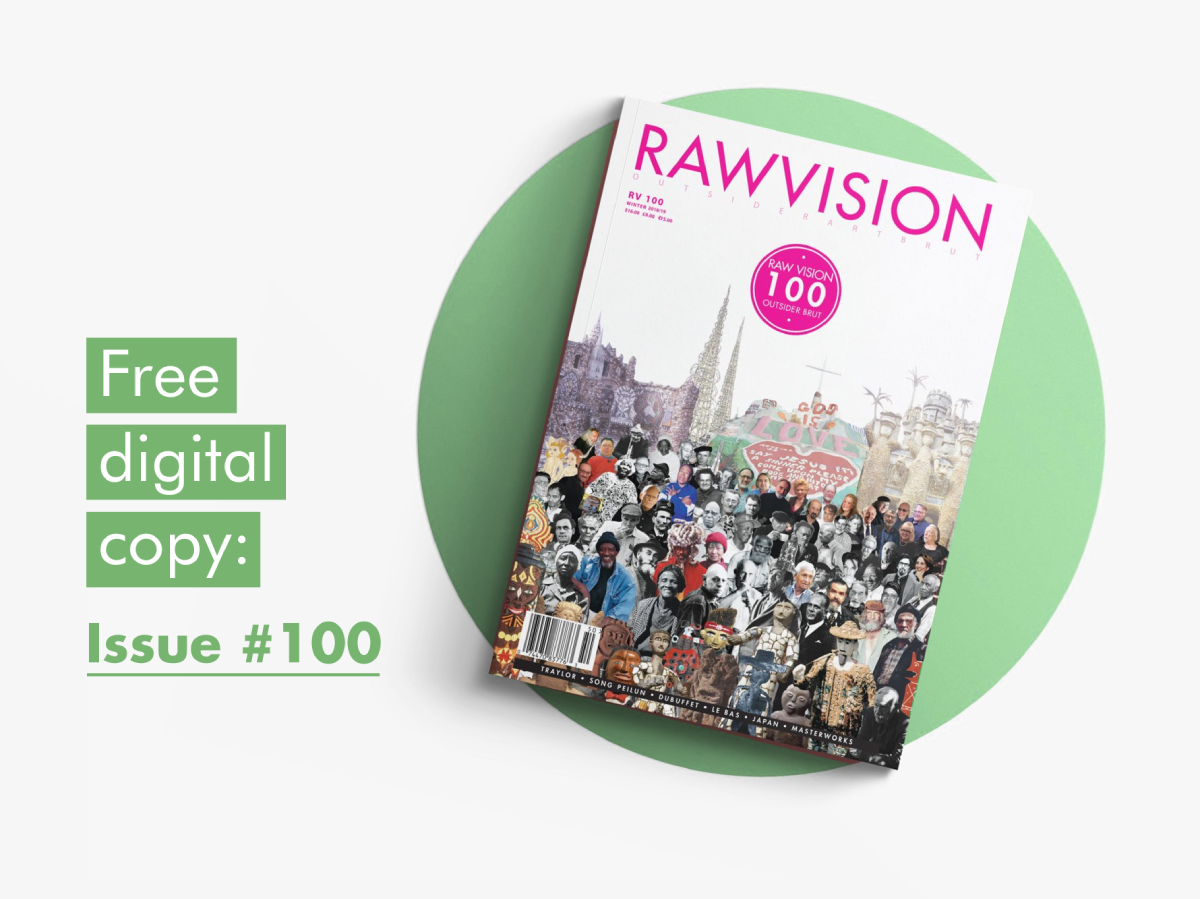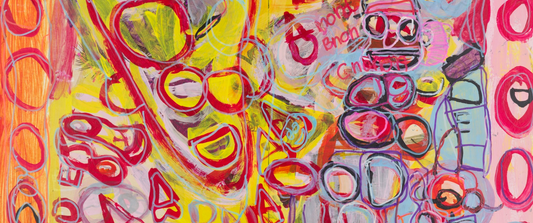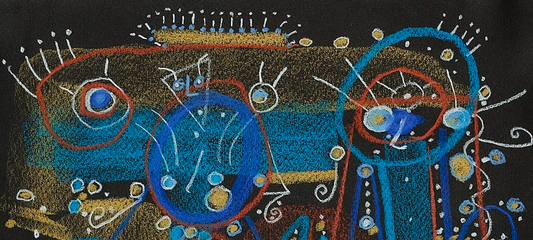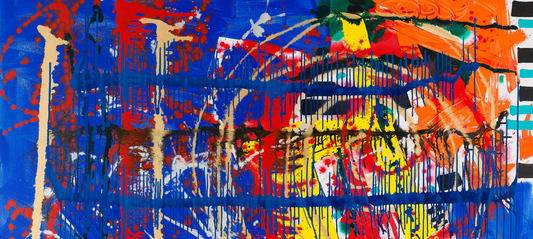First published: Spring 2019
Following the civil war and the execution of his brother, Hafiz Adem went on a perilous journey of migration from Sudan to France, escaping war, prison and death. In Paris, he recorded his experiences in words and drawings
My home
My name is Hafiz Adem. I was born on August 28, 1990, in Aumkebish, Sudan. Here I drew my family in our village of Am Rubesha, near the town of Wed Benda in western Kordofan. With the blue hat, it’s my father Adem – he’s a farmer. There he can be seen talking with a friend. My mother Fatima wears a green dress; the woman with the cane is my grandmother Mariam; in red, it is Mouna, my big sister; and the one cooking is Manal my little sister. There, my uncle arrives on his horse. I am sitting in front of my big brother Moussa, in blue. He had a club where villagers played cards. When I was 15 years old, I told my father that I was not feeling well at school and that I wanted to learn how to work the land like him. He replied that it was ok since I was able to read and say the prayers. In Kordofan, you do not have to buy land – it’s not a question of money. It is the Shaikh, the head of the village, who assigns the plots to the families.
The bombing in Darfur
I was 15 years old. It was in 2005. I went to visit a friend who lived in the village of Um Doukhun in Darfur. I was supposed to stay a week, but I liked it there and I stayed two months. I was with my friends when the militia of the Janjawid arrived. They were chasing a group of rebels from the Movement for Justice and Equality. There were 400 people in the village, many died. My friend lost his uncle and his grandfather. We managed to flee to a camp for displaced people in Darfur called Kalma. Then my friends went to Chad but they told me not to come with them, otherwise I would be taken for a rebel too, so I went back to my village.
The arrest
The night before February 2, 2014, we closed [my brother Moussa’s] club without noticing anything unusual. It was in the morning that trouble began. The police came to our house with weapons, they told us they had found the body of a dead man inside the club, and they accused us of his murder. They had carried the body into their jeep, and they showed him to us, his arms and legs were mutilated, but his face was not. We swore that we did not know this man, but they arrested both of us, in front of our family.

The prison
They took us to jail and tortured us for months to get a confession, but we were innocent. There was no investigation. At my brother’s trial, they asked our entourage to come and testify but there was no witness with us when we closed the club. The victim’s family swore that if we were released, they would kill us. Moussa was sentenced and shot on June 2nd. In Sudan, executions are public, I will never forget that day. At my trial, two days later, I was so shocked that I could not stand up or talk. I was sentenced to death and taken to the hospital because I was very ill. When I returned to prison, I was told to do forced labour until my execution. In my cell we were ten. In some cells, they were up to 50. We were forced to work from 6 a.m. to 6 p.m., without stopping. As soon as we showed signs of fatigue, the guards beat us with a whip.
Text and images extracted from: Hafiz Adem, The Journey of Hafiz El Sudani, Paris: Dessins sans Papiers, 2018.
This is an article extract; read the full article in Raw Vision #101




